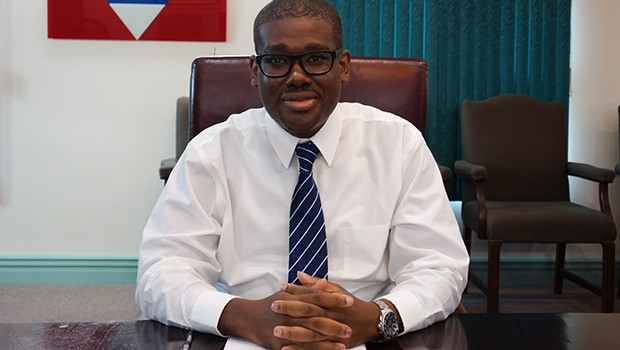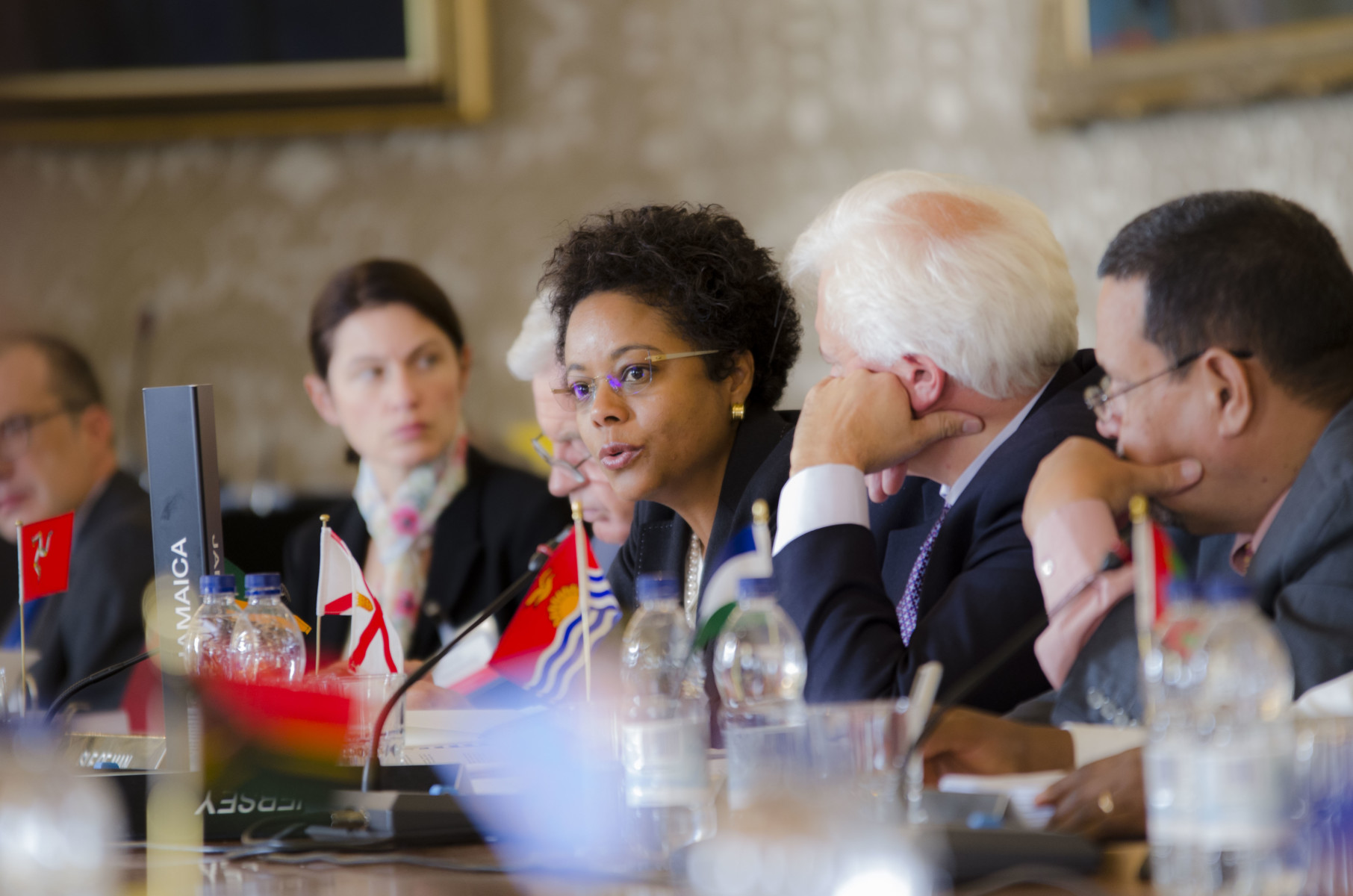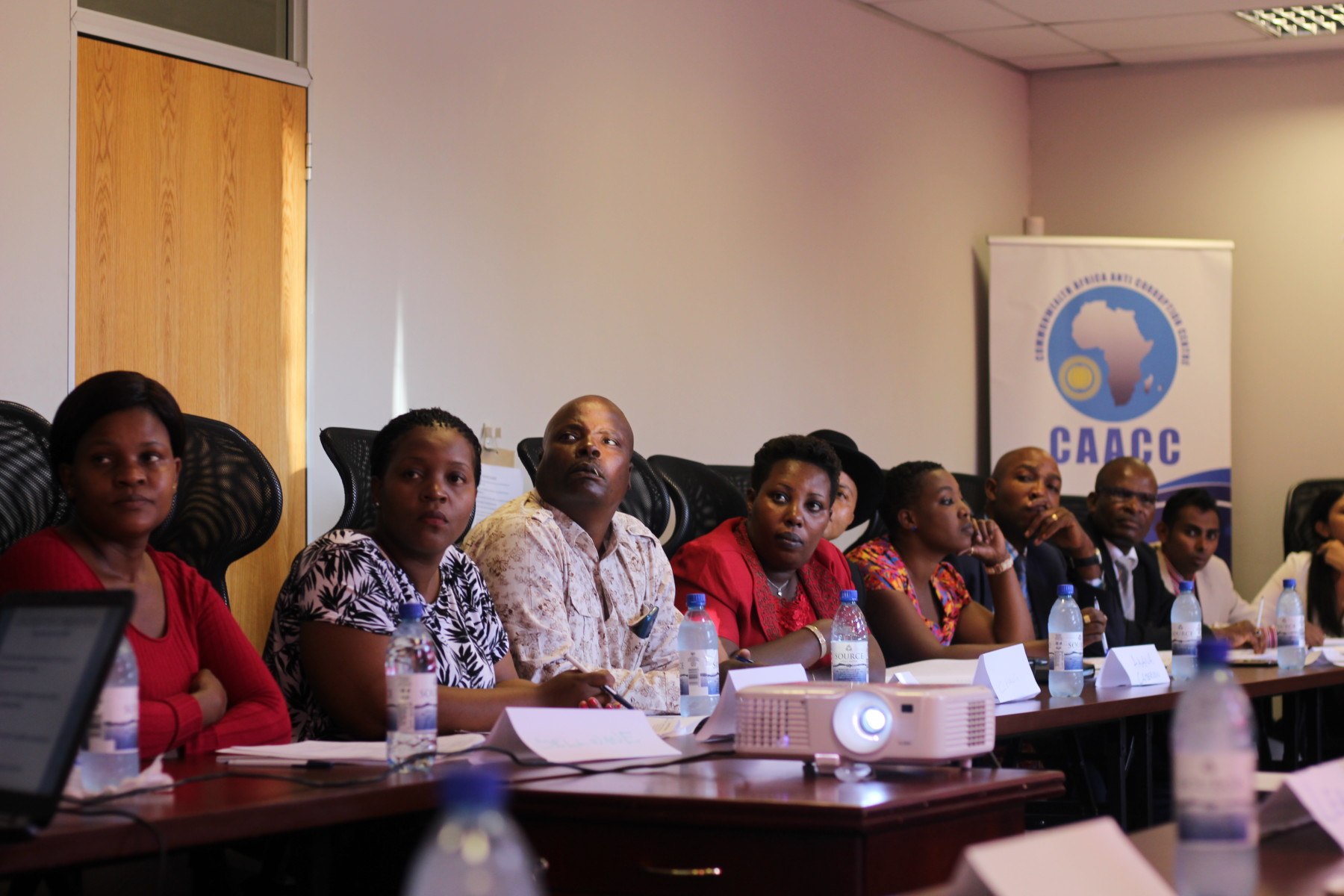Making policy and improving its outcomes are things that excite Astley Henry. “Policy matters,” he says, “because it impacts people’s lives.” In 2016/17 the Commonwealth Secretariat set up a policy unit with Mr Henry in the Government of Antigua and Barbuda’s Cabinet Office. The unit is supporting an effective organisational environment to co-ordinate policy formulation. His work was funded by the Commonwealth Fund for Technical Co-operation.
If you were to describe Mr Henry’s time in Antigua and Barbuda in a single word, it would be “busy”. One day he might be at a meeting on developing government support for young entrepreneurs in the agricultural sector. The next he could be with the Minister of Tourism, welcoming one of the world’s largest cruise ships and discussing his plans for the cruise sector – a vital part of the country’s tourist industry. That would be in between producing cabinet papers, devising training materials, and attending more meetings and conferences.
Working with the policy analysts at the Cabinet Office, Mr Henry had to gain an understanding of the strategic vision and direction of government ministers. They then needed to translate this into practical, sustainable strategies that can be monitored and which result in positive outcomes for the people of Antigua and Barbuda.
To help his team improve their policy analysis skills, he conducted workshops, in which scores of staff participated. The training developed their understanding of the Four Es Framework: economy (is the cost justifiable?), efficiency (is the ratio of output to input right?), effectiveness (will it work?) and equity (is it fair for the different groups affected?).

Mr Henry worked with the team to determine what change was needed for policy-making to be more effective. Following a review, they redefined the purpose of the Antigua and Barbuda Cabinet’s Secretariat.
In the past, the Cabinet Secretariat’s role had been the simple administrative process of receiving correspondence and cabinet papers; preparing agenda items; and forwarding decisions of the cabinet.
Its purpose would now shift to providing the cabinet with information and guidance, so that the cabinet could make better decisions based on the four Es.
With work like this, it is not surprising how Mr Henry described it to local high school students. They had just been to a career fair at the Ministry of Agriculture when he met them, and they asked him about his job. He said he loved his role “because I get to work with many different types of inspiring people to shape a country’s future for the better”.
Mr Henry worked with the team to determine what change was needed for policy-making to be more effective.
Other progress in public administration in 2015-2017
In 2016/17 we completed long-term Commonwealth Fund for Technical Co-operation (CFTC) projects in four countries:
- Antigua and Barbuda: described above.
- Botswana: our expert helped to strengthen the work of the Commonwealth Africa Anti-Corruption Centre.
- Cook Islands: we supported the country in implementing improved performance management practices. These will help develop best practice human resource management policies and strategies.
- Mauritius: we assisted the government in developing the Civil Service Reform Strategy.
In the previous financial year (2015/16), nine countries received technical support to improve their public sector governance. We saw results in eight of them: Antigua and Barbuda, Belize, Botswana, Guyana, Kenya, Namibia, Saint Vincent and the Grenadines, and Sierra Leone. Highlights included:
- In Antigua and Barbuda, we helped make significant improvements to the government’s oversight of public financial management. We established an Internal Audit Unit with a website to facilitate the transparent publication of audits. This helped modernise and strengthen public procurement. We assisted in the delivery of a new model Policy Delivery Unit in the Cabinet Office supported by our CFTC Policy Adviser (see above) . We supported a Knowledge Management Initiative, including an online policy data bank.
- Guyana strengthened its Internal Audit System to expand internal audit to an additional six line ministries.
- Saint Vincent and the Grenadines revised its draft Public Service Act, which will include a code of conduct for public servants.
- Sierra Leone: The Ministry of Finance and Economic Development adopted a new Enterprise Risk Management Policy.
In addition, Public Procurement and Internal Audit inaugural regional networks were established in Africa and the Caribbean. These networks provide a forum for developing and sharing best practices. A procurement toolkit produced by the Caribbean network will be rolled out to members. Furthermore, we saw the establishing of a professional exchange network for risk management and internal audit for Africa.
Jamaica has benefited tremendously from the Commonwealth’s peace-building initiatives through the training of election officials, legislative drafting as well as technical assistance in the proposed establishment of a national human rights institution. – Kamina Johnson Smith, Jamaica’s Minister of Foreign Affairs and Foreign Trade


